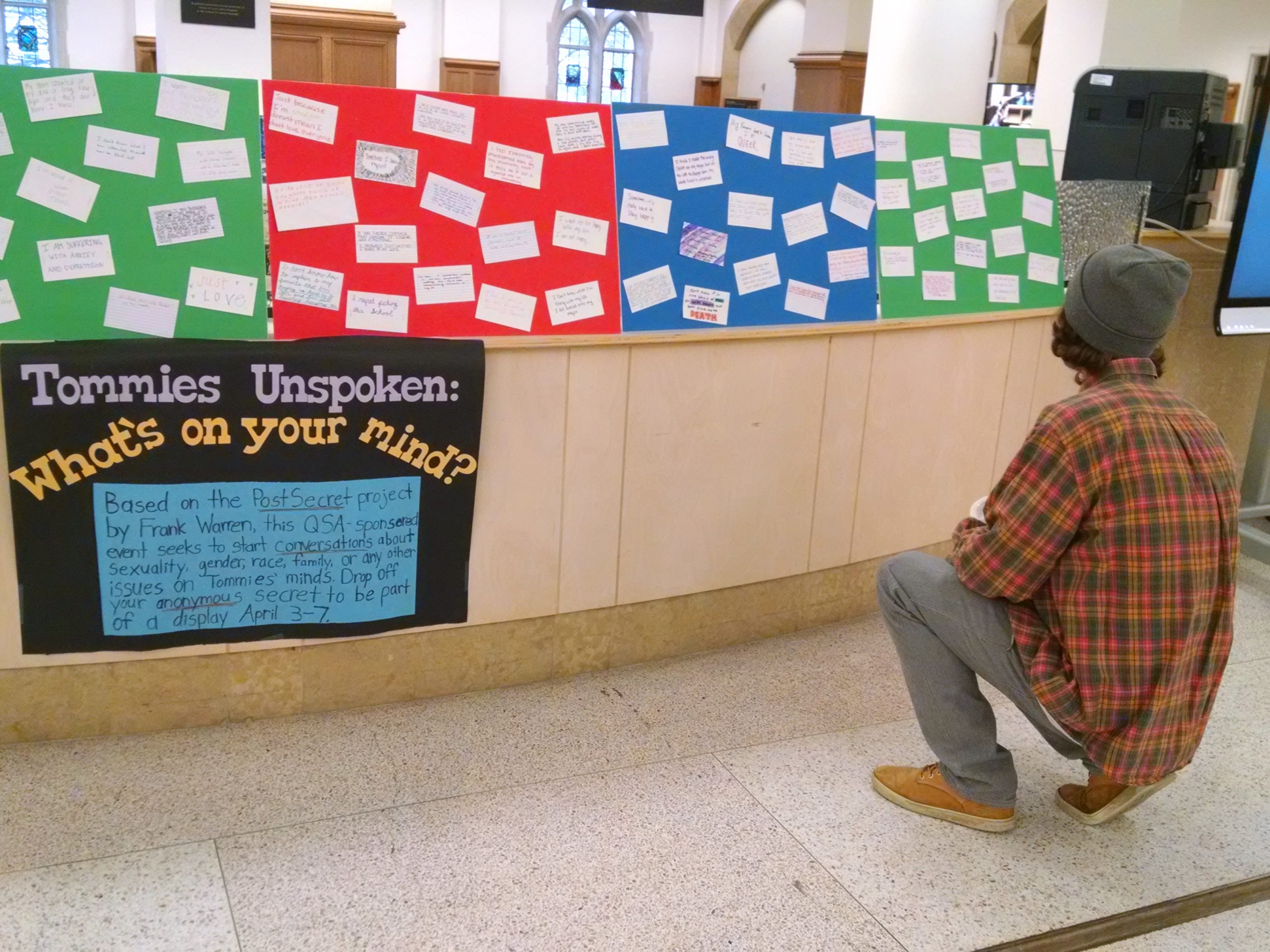A row of colored posters stretched away from me, covered in handwritten postcards. My own anonymous thoughts were on display here, beside many others. Some I could relate to. Many I could not. And this was exactly what the facilitators of this event were hoping for.
Tommies Unspoken, a Queer-Straight Alliance-sponsored event that was on display in the O’Shaughnessy-Frey Library in early April, was a collaborative project based on Frank Warren’s PostSecret books. QSA, of which I serve as event coordinator, invited students to anonymously share their thoughts by writing them on notecards. We encouraged participants to write concerns, fears or issues they might find difficult to talk about.
“It allows people to say and to deal with issues that they otherwise don’t. It allows people to look and see that there are issues going on on our campus that they might not know about because it hasn’t touched them yet or hasn’t affected their lives,” said Kaitlyn Finkel '19, vice president of QSA.
Elizabeth Herge ’19, president of QSA, stressed the anonymity of the submissions.
“Having conversations is really difficult, and the anonymity helps people say things that they want to say,” she said.
The project was intended to be a safe space to talk about topics that may not be discussed anywhere else.
“It’s important to bring awareness and discussion about these topics which we feel are important, but that are oftentimes not talked about because people feel ashamed or that they have to hide,” Finkel said.
The topics displayed varied widely: sexuality, race, religion, mental health, suicide, school, friends and more: “Sometimes when I go to bed I pray I don’t wake up,” read one notecard. Another: “My parents don’t know I’m queer.” And even: “I’m terminally ill. The reason I’m still at UST is because I want to pretend I’m normal.”
Hannah Drazenovich ’17 checked out the display on its opening day April 3 and was surprised by all the different topics participants were dealing with.
“It just shows that everyone has their own struggle, their own things they have to overcome,” she said.
Drazenovich also commented on the difficulty of many of the subjects raised in the submissions.
“Most of these things are hard to share,” she said. “But it’s still obviously a big part of their life that they keep secret. It’s easy to put on a mask. But stuff like [this project] makes people, especially at St. Thomas, seem a lot more vulnerable and real.”
Riley Hare ’14 also viewed the display and commented on the vulnerability.
“I like that it’s written by hand. When it’s not all digital, there’s a little more commitment to writing something out by hand. I feel like you can really see the emotion in some of these,” he said.
For me, viewing the posters full of handwritten submissions was indeed an emotional and connecting experience. Many of the messages reminded me that, no matter what struggles may make me feel alone, others share them. Finkel had a similar experience while going through submissions for the project.
“I stopped at a card and for a second I thought, ‘I don’t remember putting that card in.’ And then I realized that it was a card somebody else put in, but I related so much to it that I thought it was my card,” she said.
This sort of emotional connection is exactly what the Tommies Unspoken facilitators were aiming for. According to Herge, they hope to make Tommies Unspoken an annual event to continue the creation of community on campus.







